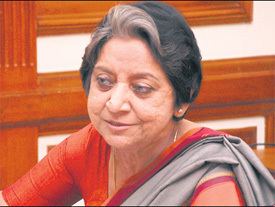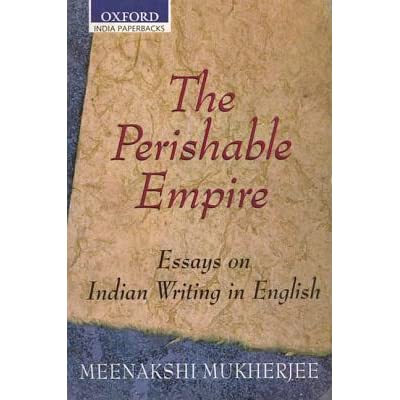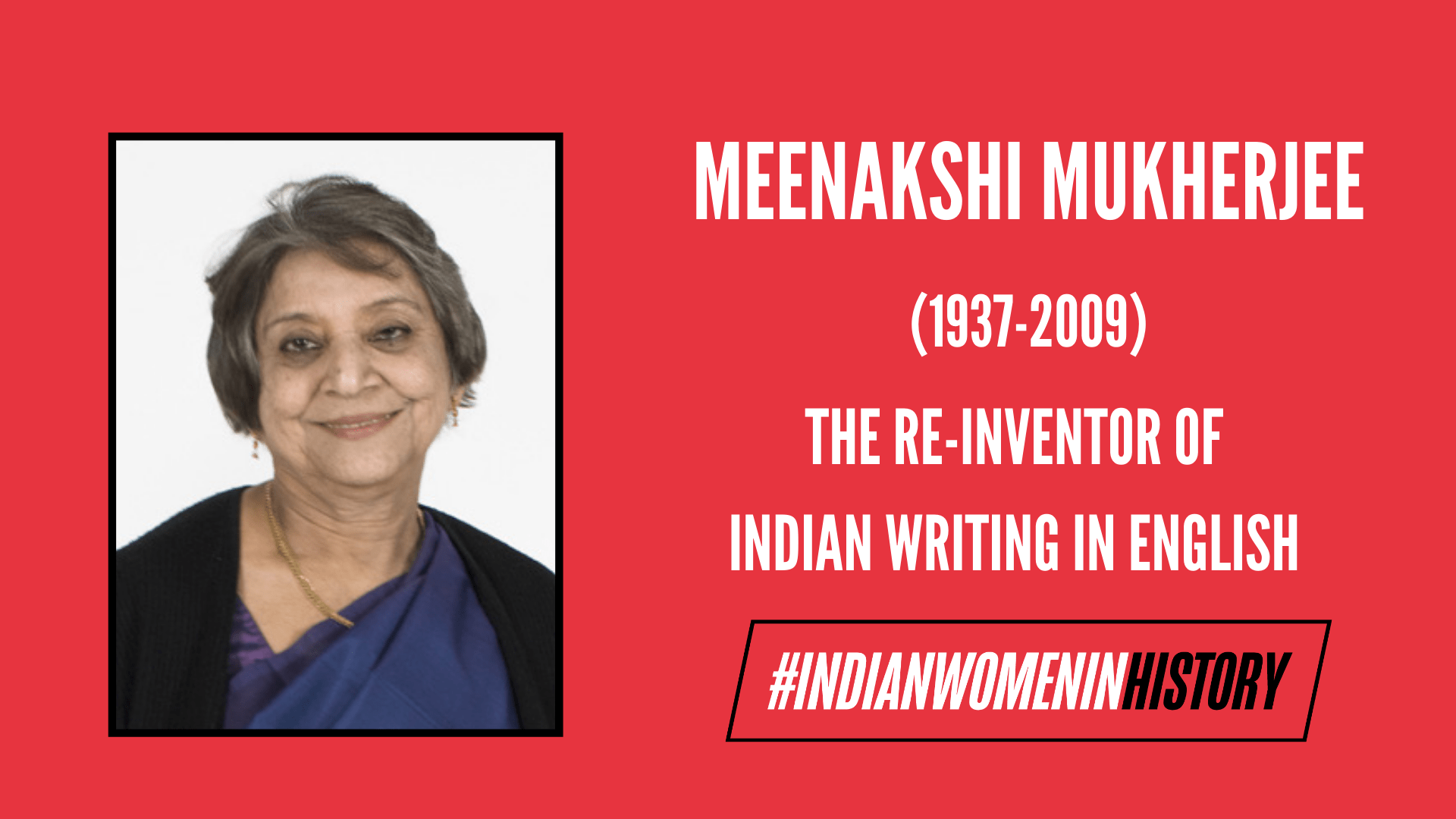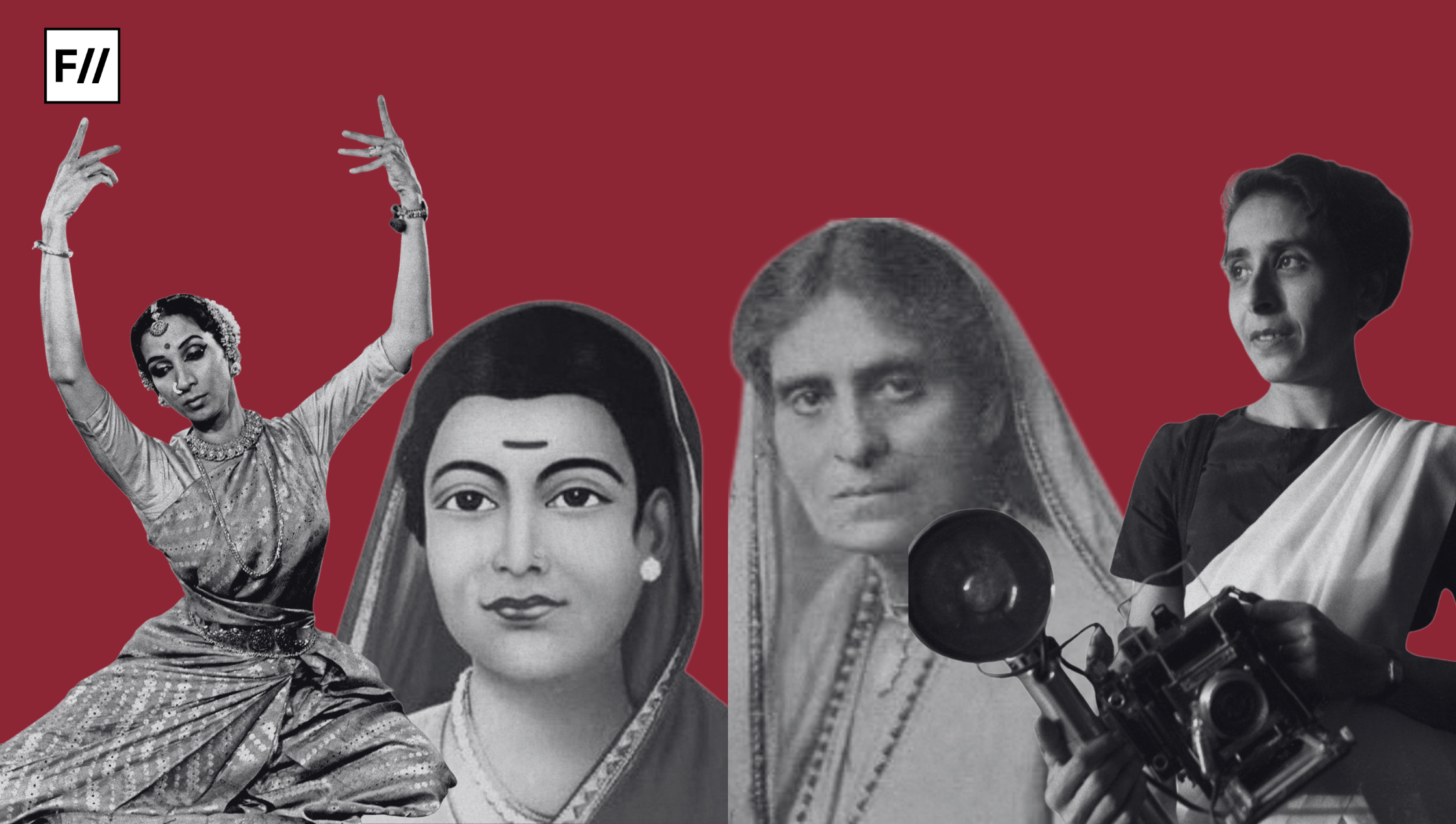With the advent of colonisers in India, nothing has been devoid of the overt influence of colonialism. This was also felt in Indian Writing in English which was deeply patronised by the Western Literature. The literature from the west was essentially what formed the canonical literature until the mid 20th century after which, for the very first time, Indian Writing in English received the due visibility it deserved. All the works that were written before this in Indian English were mostly the glorification of the colonisers and did not incorporate the truth per se. It was during this time that Professor Meenakshi Mukherjee wrote extensive Indian English Criticism and traced the rise of novel in India.
Her seminal arguments were astutely posited from a trasgressive, postcolonial and feminist lens and were not just limited to literary studies but also took into account cultural history. She is famous for her postcolonial and colonial studies which often dilutes her feminist writing which was also at par with any of her other works on varied subjects.

Early Life And Achievements
Not a lot has been known about her life before marriage except for the fact that she was born on 3 August, 1937. Being from a privileged background, she had the access to resources and received her education from well off universities. She was married to her own professor Sujit Mukherjee who was an Indian writer, literary critic and a former cricketer. They used to travel together to examine newspaper archives.
She was a famous litterateur and spent a lot of her life teaching. She taught English literature and Critical theory at a number of colleges in Patna, Pune, University of Delhi, University of Hyderabad and Jawaharlal Nehru University. She re-invented and reformed the way English Literature was taught in universities and advocated for the teaching of Indian regional texts translated in English. This transformed the way English Literature is taught to this date to the contemporary students and pushed the limits of Indian Writing in English. Besides this, she was also a visiting professor in universities outside India.
She was a famous litterateur and spent a lot of her life teaching. She taught English literature and Critical theory at a number of colleges in Patna, Pune, University of Delhi, University of Hyderabad and Jawaharlal Nehru University.
She was also a part of many prominent committees like the University Grants Commission’s National Panel for English and Western Languages and was the Chairperson of Indian Association for Commonwealth Literature and Language Studies (IACLALS) from 1993 to 2005 and International ACLALS from 2001 to 2004.
Being an adept at what she does, she also received the precious Sahitya Akademi Award in 2003 for her book The Perishable Empire: Essays on Indian Writing in English. The biggest award for her work is its distinguished everlasting presence for a reader and the fresh critical perspective it brings forth for them.
Also read: Lila Majumdar: Bengal’s Beloved Storyteller | #IndianWomenInHistory
Her Books And Essays: A Bifocal Lens Of Postcolonialism And Feminism
In addition to the various essays, Professor Meenakshi Mukherjee wrote numerous books in her lifetime that dealt with the themes of postcolonialism, linguistic barriers and translations, demarcations in terms of region, nature, cultural identities and gender, feminist perspectives and the idea of Indianness. She is widely acclaimed for her novel The Perishable Empire: Essays on Indian Writing in English, which is a collection of essays that brings forth a new perspective for looking at the Indian Writing in English and traced the popularity of novel in India which she argued is a “genre nursed if not born out of a tension between opposing systems of value in a colonial society and modified by certain indigenous pressures.”

Her book The Twice Born Fiction: Themes and Techniques of Indian Novel in English made her a pioneer of contextualising and situating novels in their historical and social context while incorporating the various intersections such as class, gender, culture and imperialism.
Jane Austen and Re-reading Jane Austen are her underappreciated books that analyse the works of Jane Austen and her contemporaries from a feminist perspective. They deal with the idea of breaking the shackles of patriarchy and a tension between “rebellion and conformity.” They also provide the non-western reader a peek into the hollowness of British English texts, thus encouraging them to take pride in the Indian English Literature.
Professor Meenakshi Mukherjee lived a wholesome life and she did everything in her power to make every day count through her work, lectures and insights. She carved a niche for Indian writing in English and helped immensely in its global presence.
An Indian for All Seasons: The Many Lives of R.C. Dutt is an extraordinary biography narrating the noteworthy life of Romesh Chunder Dutt. It also deals with the themes of colonialism, religion and language with regard to R.C. Dutt. Her work is profoundly seminal and is of extreme prominence to the contemporary literary critics and writers. She also contributed as an editor for various books while also working as a literary critic at the same time. Her critique was often from a theoretical approach and made her famous for her deep insights.
Death And Legacy
Professor Meenakshi Mukherjee lived a wholesome life and she did everything in her power to make every day count through her work, lectures and insights. She carved a niche for Indian writing in English and helped immensely in its global presence. She died on 16 September, 2009 at the age of 72 when she was at the airport to board her flight to Delhi for the release of An Indian for All Seasons: The Many Lives of R.C. Dutt. She is survived by her two daughters, Rukmini and Rohini.
Also read: Sukumari Bhattacharya: Remembering The Great Indologist | #IndianWomenInHistory
She has left behind her legacy in the form of her profound work that will continue to remain and inspire everyone who comes across it. Her meticulous mentorship to academics, critics, editors and lecturers was her stepping stone in the direction of preserving it. She was a strong upright woman who dared to transgress every boundary and recreated the entire genre of Indian writing in English. Having said that, it’s also essential to bear in mind that her good education, access to resources and places stems from her being born and brought up in a privileged household.




